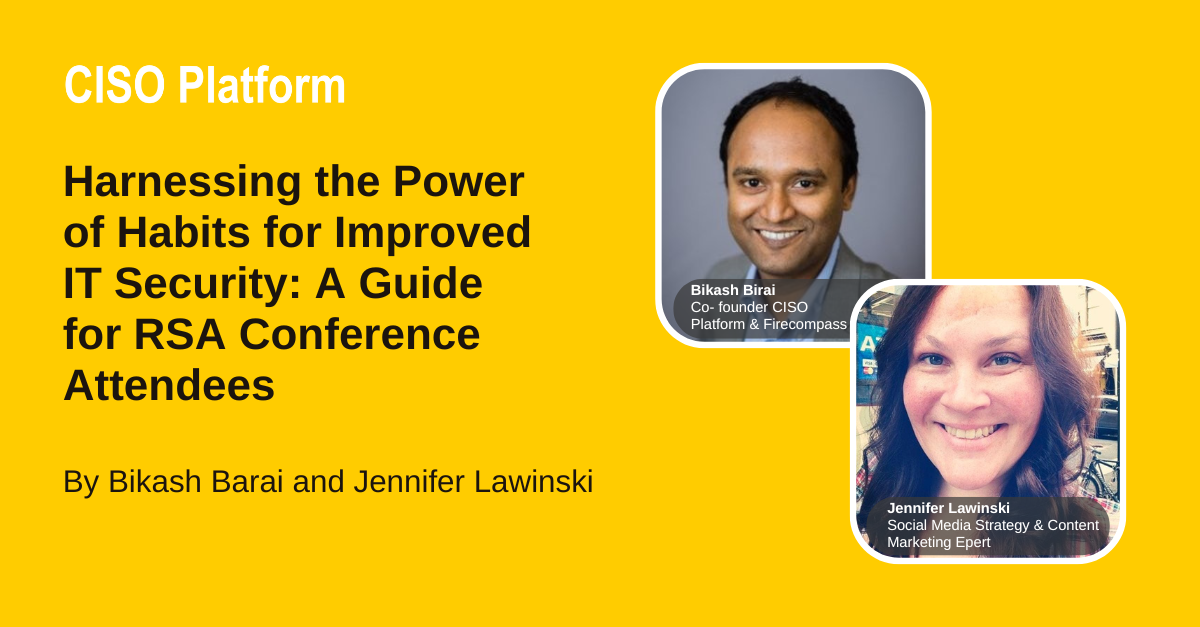Welcome, fellow security enthusiasts! As we gather once again at the RSA Conference, amidst the buzz of innovative technologies and strategies, it's crucial to reflect on a fundamental aspect often overlooked in the realm of cybersecurity: human behavior. While awareness campaigns have long been a cornerstone of security initiatives, their effectiveness often plateaus, leaving organizations vulnerable to persistent threats. But fear not, for there is a powerful ally in our quest for better security practices: the science of habits.
Highlight of Points:
Understanding the Structure of Habits: Before diving into the realm of behavior change, it's essential to grasp the intricate structure of habits. Habits consist of three main components: cue, routine, and reward. Identifying these elements within the context of IT security behaviors can provide valuable insights into potential areas for intervention.
Building Habits: Armed with knowledge of habit formation, security professionals can strategically design interventions to cultivate desirable behaviors within their organizations. Whether it's implementing regular password updates, practicing safe browsing habits, or adhering to multi-factor authentication protocols, habit-building initiatives can gradually transform security practices from conscious efforts to automatic routines.
Changing Habits: Despite the allure of awareness campaigns, simply informing users about security best practices often falls short in eliciting lasting behavior change. Instead, leveraging the principles of habit formation allows for a more nuanced approach to instilling secure behaviors. By targeting key cues and rewards associated with undesirable habits and substituting them with more favorable alternatives, organizations can effectively rewire ingrained behaviors over time.
Why RSA Conference? As the premier gathering of security professionals, the RSA Conference serves as the ideal platform to catalyze conversations around the intersection of human behavior and IT security. By shedding light on the untapped potential of habit formation in bolstering security practices, attendees can gain actionable insights to fortify their organizations against evolving threats.
As we navigate the ever-evolving landscape of cybersecurity, it's imperative to recognize the pivotal role of human behavior in shaping the security posture of organizations. By embracing the science of habits and integrating it into our security strategies, we can transcend the limitations of traditional awareness campaigns and forge a path towards sustainable behavior change. So, let us seize this opportunity at the RSA Conference to harness the power of habits and pave the way for a safer digital future.
Bikash Barai is credited for several innovations in the domain of Network Security and Anti-Spam Technologies and has multiple patents in USPTO. Fortune recognized Bikash among India’s Top 40 Business Leaders under the age of 40 (Fortune 40-under-40).Bikash is also an active speaker and has spoken at various forums like TiE, RSA Conference USA, TEDx etc.Earlier he founded iViZ an IDG Ventures-backed company that was later acquired by Cigital and now Synopsys. iViZ was the first company in the world to take Ethical Hacking (or Penetration Testing) to
the cloud.
https://twitter.com/bikashbarai1
https://www.linkedin.com/in/bikashbarai/
Jennifer Lawinski Editor-in-Chief of online engagement for RSA Conference. With experience writing for publications like CRN and CIOInsight, Jennifer has the experience to facilitate the important security conversations. Keep an eye on this space. I am excited to see what the next phase of RSAC 365 will look like.


Comments